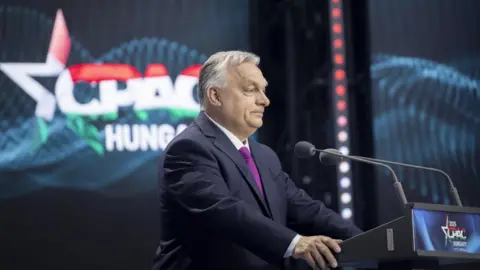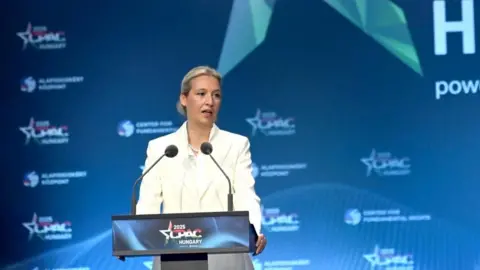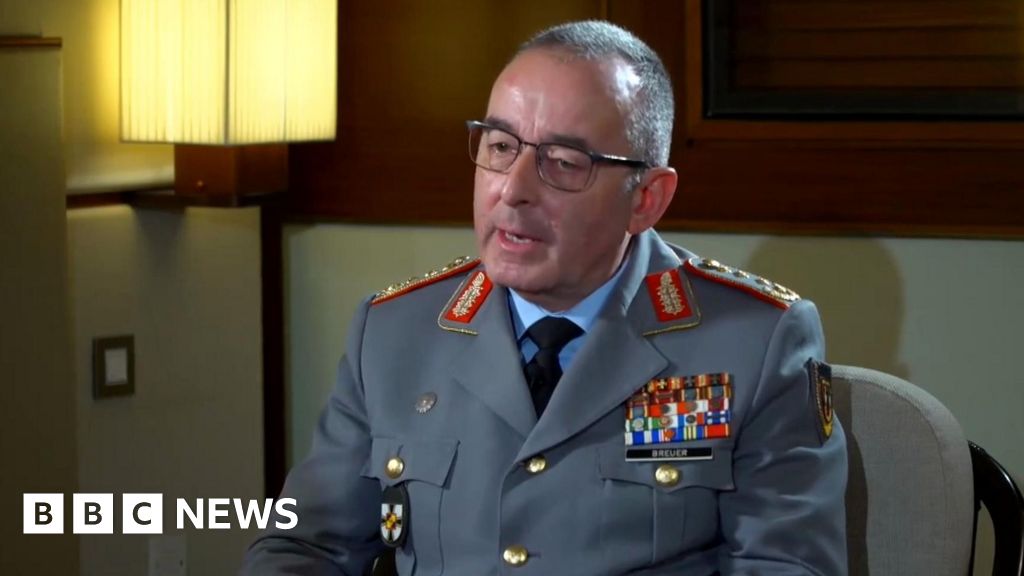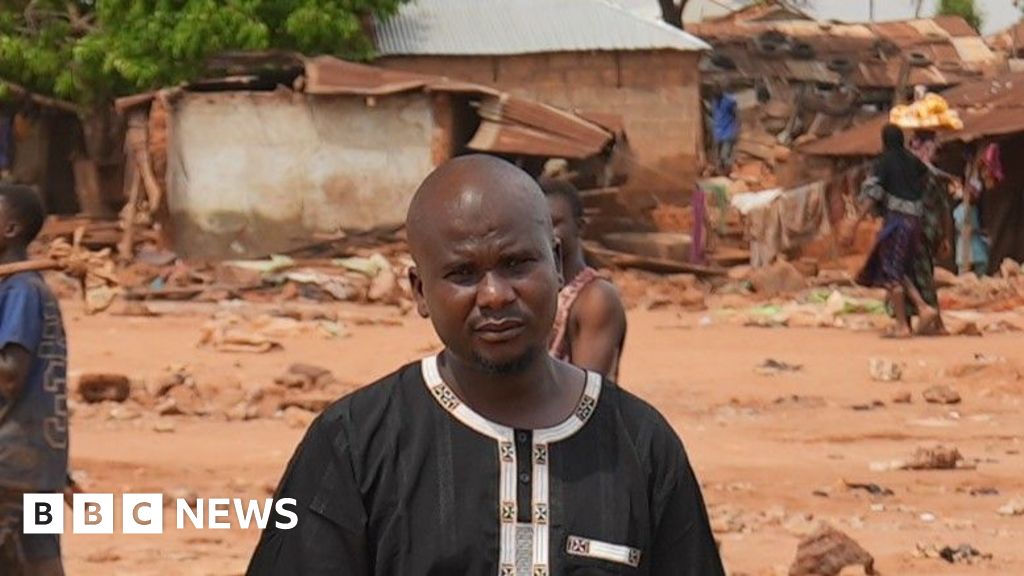ARTICLE AD BOX
Nick Thorpe
Central Europe correspondent

 ZOLTAN FISCHER/HUNGARIAN PM HANDOUT
ZOLTAN FISCHER/HUNGARIAN PM HANDOUT
Hungary's Viktor Orban described President Trump as a "truth serum"
It's been a big week in Europe for CPAC, the US Conservative Political Action Conference, with large gatherings in Poland and Hungary.
The timing is crucial, ahead of Poland's presidential election run-off on Sunday, between a CPAC-backed nationalist, Karol Nawrocki, and the liberal Mayor of Warsaw Rafal Trzaskowski, which CPAC speakers describe as a "battle for Western civilisation".
Traditionally a meeting place for conservative activists in America, CPAC's visibility has soared with Donald Trump back in the White House and his Maga (Make America Great Again) movement in undisputed control of the Republican party.
"This is not a gathering of the defeated, but of those who have endured," Hungary's nationalist Prime Minister Viktor Orban told the opening session on Thursday in Budapest.
Describing President Trump as a "truth serum", Orban emphasised his vision of a new Europe, in what he calls "the Age of Patriots", based on the nation, the traditional family, and his version of Christianity.

 EPA-EFE/Shutterstock
EPA-EFE/Shutterstock
Alice Weidel of Germany's far-right AfD was among the speakers
To tumultuous applause, he and other speakers derided the European Union's Green Deal, and complained of mass immigration and "gender and woke madness".
In a congress hall replete with disco music, flashing lights, video clips, and celebrity show hosts, older politicians sometimes seemed dazzled by all the razzamatazz.
"Europeans do not feel safe in their own towns, homes, and countries," Orban said. "They are strangers in their own homes. This is not integration, it is population replacement."
It was a theme echoed by his guests Alice Weidel of Germany's far-right AfD and Geert Wilders of the Netherlands' Freedom Party.
This was a movement looking to reshape the whole European project with its own brand of conservativism, jettisoning the old EU liberalism.
Other speakers included Slovak Prime Minister Robert Fico and the leader of the Austrian Freedom party Herbert Kickl.
Former British Prime Minister Liz Truss was here too, with Australian ex-Prime Minister Tony Abbott and former Polish and Czech Prime Ministers Mateusz Morawiecki and Andrej Babis, alongside an array of influential Republicans and South American politicians.
There was even a representative from Rajendra Modi's BJP in India, Ram Madhav.

 Reuters
Reuters
In Warsaw, US Homeland Security Secretary Kristi Noem made clear who she supported in Poland's presidential election
In Warsaw on Tuesday, and then in Budapest too, speakers laid out the case for what one of them called "an international nationalist movement, a global platform for anti-globalist forces".
"Unlike CPAC in the US, CPAC Hungary seems to have more intellectual substance. And it also serves as an opportunity - rare in Europe - for nationalist and populist politicians and activists to get together and network," Rod Dreher, a Budapest-based editor of the American Conservative told the BBC.
"Viktor Orban's promise to make Budapest the intellectual capital of dissident European conservatism has come true."
Orban relishes that "dissident" theme, while more mainstream European conservatives like Germany's new chancellor, Friedrich Merz, keep their distance.
There's been a sense in Hungary and Poland this week that the Trump administration is here to pay back the support that Donald Trump received from nationalist leaders in Europe in his victory last November.
"If you elect a leader who will work with President Trump, the Polish people will have a strong ally," Kristi Noem, Trump's head of Homeland Security told the Warsaw CPAC conference.
"You will continue to have a US military presence here… and you will have equipment that is American made, high quality."
She did not say what would happen if Karol Nawrocki did not win on Sunday.
While the Maga movement in Europe - translated by Viktor Orban into Mega (Make Europe Great Again) - sounds self-confident, it has also endured setbacks, most recently with the liberal mayor of Bucharest, Nicusor Dan, winning Romania's presidential election.
In Albania, Sali Berisha, the Maga-backed leader of the Democratic Party, lost this month's parliamentary election to the Socialist Edi Rama. Former Trump campaign strategist Chris LaCivita helped Berisha's campaign.
And in Austria Herbert Kickl's hopes of becoming chancellor were dashed by the formation of a new left-right coalition, which chose Christian Stocker of the Austrian People's Party instead.
The throne is even wobbling beneath Viktor Orban, the host of the conference in Budapest.
Could his message, so fresh in the ears of his US admirers, have gone stale for Hungarians?
"If Nawrocki does not win in Poland, Hungary will be next and Viktor Orban will lose power," George Simion, the Romanian nationalist defeated by Nicusor Dan warned in Warsaw. Hungary's next parliamentary elections are due in April next year.
There are also cracks in the facade of unity.
Ukraine and Russia remain a source of division. Italian Prime Minister Giorgia Meloni was conspicuous by her absence.
And there was bad news this week for Viktor Orban - the Hungarian fertility rate fell to 1.28 in April, almost as low as when he came to power in 2010, despite 15 years of tax and home-building incentives to encourage couples to have more children.
But as the chairs were packed away in the congress hall in Budapest on Friday evening, there was a mood of elation, eyes trained on the run-off in Poland.

 1 day ago
8
1 day ago
8








 English (US) ·
English (US) ·